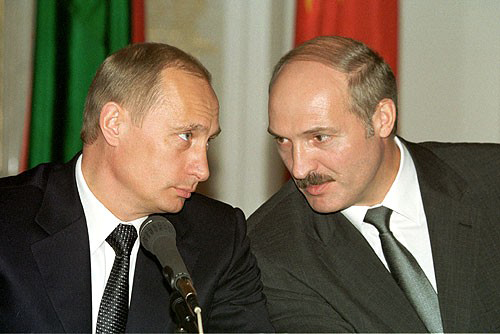Sponsored Content
Belarus Refuses OSCE Election Observation: International Concern Grows
The Belarusian government's decision not to invite the Organization for Security and Co-operation in Europe (OSCE) to observe the upcoming presidential elections on 26 January has caused international criticism and concern. The OSCE, in particular the Office for Democratic Institutions and Human Rights (ODIHR) and the Parliamentary Assembly (OSCE PA), strongly condemned this step and warned of the consequences for the country's democratic development.
 Lukashenko, who has been in power in the former Soviet state since 1994 and is a close ally of Russian President Vladimir Putin, is running for a seventh term in office on Jan. 26. / Picture: © Wikimedia Commons / www.kremlin.ru - The President of the Russian Federation [CC BY-SA 3.0 (https://creativecommons.org/licenses/by-sa/3.0)]
Lukashenko, who has been in power in the former Soviet state since 1994 and is a close ally of Russian President Vladimir Putin, is running for a seventh term in office on Jan. 26. / Picture: © Wikimedia Commons / www.kremlin.ru - The President of the Russian Federation [CC BY-SA 3.0 (https://creativecommons.org/licenses/by-sa/3.0)]
“I deeply regret the decision of the Belarusian authorities not to invite OSCE observers,” said Maria Telalian, Director of the ODIHR, in an official statement. “This decision deprives civil society in Belarus of the opportunity to benefit from an independent and impartial assessment of the election process.” In recent months, the OSCE has repeatedly tried to contact the…
or Log In
Fast News Search





